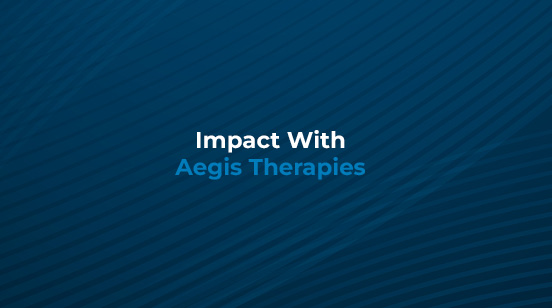
Substance abuse among the geriatric population is a growing concern. Do you feel equipped to assess and treat older adults with substance abuse disorders? This webinar is ideal for therapists, therapy assistants, or students seeking actionable insights into addressing substance abuse in facility settings. Don't miss this opportunity to deepen your expertise and better serve your patients.

Conducting home assessments for community-dwelling older adults is important, but do you know what to look for during these assessments? This educational panel discussion is great for therapists, therapy assistants or students who want to gain insights into the importance of conducting home assessments, what to look for, and the role of rehab professionals in home assessments.

Are you curious about the ins and outs of transitioning through a continuing care retirement community? This educational panel discussion is great for therapists, therapy assistants or students who want to gain insights into the different settings within a CCRC, best practices for transitioning between care settings and clinical program development for each setting. The discussion will focus on the transitional process within a CCRC and how to collaborate with care team members to create successful transitions.

This educational panel discussion is great for therapists, therapy assistants or students who want to gain clinical insights on health literacy's impact on post-acute care. The discussion will focus on the value, knowledge and application of health literacy assessments. You will learn how to identify areas of health literacy where your patients may need support and integrate appropriate educational strategies to address low health literacy for optimal outcomes.

This educational panel discussion is great for therapists, therapy assistants, or students who want to gain insights into the current operating environment of post-acute rehab. The discussion will also touch on potential opportunities in the field and how you can move rehabilitation forward while meeting the quadruple aim. You'll walk away with new knowledge about the contextual factors shaping post-acute rehab, the importance of value-based care for our growing senior population and actionable steps to improve the value of our services.

This educational panel discussion is great for therapists, therapy assistants, or students who want to learn about clinically appropriate evidenced-based physical, occupational and speech therapy standardized assessments and interventions for the higher-functioning older adult population. You will learn to identify the characteristics of caregiver burnout, understand a caregiver's health literacy and recognize the role of therapists in educating caregivers about the disease process. You will also be able to implement interventions and action steps to support caregivers based on the care setting and accurately bill and document caregiver education.

This educational panel discussion is great for therapists, therapy assistants, or students who want to learn about clinically appropriate evidenced-based physical, occupational and speech therapy standardized assessments and interventions for the higher-functioning older adult population. You will learn to identify various standardized assessments, intervention strategies and methods to identify needs within the high-functioning population. You’ll also gain an understanding of how to document medical necessity and skilled services effectively.

This educational panel discussion is great for therapists, therapy assistants, or students who want to learn about the collaborative approach to patient-centered care and the creation of an effective care planning process for stronger outcomes. You will develop the ability to recognize the components of a patient-centered, collaborative care planning process and learn techniques for enhancing collaboration within the care team. Come ready to ask questions!

Therapists and assistants in senior care often face difficulties collaborating and communicating effectively. These challenges can arise for various reasons, but solutions are available to improve collaboration and communication.
Join us for an eye-opening session to learn about factors that impact effective supervision and collaborative strategies. Discover three strategies to enhance registered and assistant therapist supervisory and cooperative relationships.






This educational panel discussion is great for therapists, therapy assistants or students beginning their fieldwork experience. You’ll learn the differences among group, concurrent and individual treatment approaches, distinguish billing considerations based on group or concurrent scenarios, and hear discussions on how clinicians can implement group service delivery during their day.







This webinar will focus on the differences in treatment approaches, regulations and documentation standards that exist in different care settings. We’ll explore the regulatory differences among SNF, home health and outpatient environments, identify differences in treatment approaches and outline the required documentation elements for each setting.


This webinar is moderated by Shawn Blakely, PT. Panelists Janice Brown, PT, RAC-CT, Ryan Loucks, SLP and Stephanie Schild, OTD, MS OTR/L, CLT will discuss what they’ve learned from practicing telehealth. They’ll share best practices, benefits, regulatory considerations and how to get started.

Gaining an understanding of the International Dysphagia Diet Standardization Initiative (IDDSI) is crucial for senior care because it can improve the quality of life for patients with dysphagia.
Watch the link below to learn how to implement IDDSI standards, streamline SLP evaluations, enhance interdisciplinary team preparation for IDDSI diets and apply tactics for a successful transition. This will help you overcome challenges and ensure that patients receive consistent, safe, and appropriate dysphagia management.